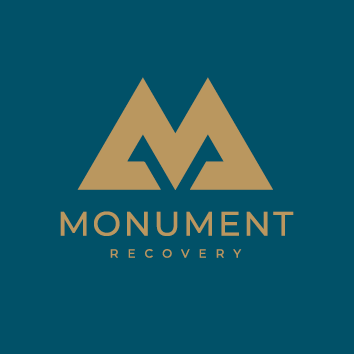When is Drinking a Problem? Five Signs You Need Help
mesa arizona addiction treatment • Written by: Monument Recovery

As folks in long-term recovery, we’ve seen countless young adults downplay their drinking habits. Heck, we did the same thing ourselves when we were drinking. It wasn’t until later that we realized our relationship with alcohol had become more harmful than we could have imagined. At Monument Recovery, located right here in Mesa, Arizona, we specialize in helping young adults who are struggling to recognize when drinking has turned from casual to problematic.
Alcohol is deeply embedded in many social experiences, especially for young people. Whether it’s a party, a celebration, or just hanging out with friends, drinking can feel like a normal part of life. But at what point does it go from a fun, social activity to something that’s affecting your health, relationships, and overall quality of life?
Here are five key signs that drinking may be becoming a problem—and why it's important to reach out for help when you notice these patterns in yourself. Speaking from personal experience, getting help sooner rather than later is definitely the move.
1. You’re Drinking to Cope with Stress or Emotions
One of the clearest signs that drinking is becoming an issue is when it’s used as a way to avoid negative or difficult emotions. It’s an easy habit to fall into. Feeling crappy? There’s instant relief in a bottle. Have you ever found yourself reaching for alcohol after a rough day to "take the edge off"? Or maybe you drink to escape feelings of sadness, anxiety, or stress.
Alcohol may offer temporary relief, but it doesn’t solve the underlying problems. Over time, relying on alcohol to cope with emotions can worsen mental health issues and create a cycle where drinking becomes a primary method of managing stress or emotions. If this resonates with you, it's worth considering how much alcohol is influencing your emotional well-being—and how treatment can offer healthier coping strategies.
2. Your Drinking is Affecting Your Relationships
Take a moment to think about how your drinking habits have impacted your connections with others. Are you distancing yourself from friends or family? Have people expressed concern about how much you drink?
When alcohol starts to cause tension in your relationships—whether due to arguments, missed commitments, or behaviors you wouldn’t repeat sober—it’s a clear indicator that drinking is no longer a harmless activity. At Monument Recovery, we recognize that alcohol addiction doesn’t only affect the individual, but it can also damage relationships. Addressing this early can help prevent deeper emotional rifts.
3. You’ve Tried to Cut Back, But Can’t
Have you ever tried to cut down on your drinking but found yourself falling back into old habits? Maybe you’ve set limits, only to find that you keep moving the goal post. If you’re constantly saying, “I can quit whenever I want” but never do, it may be a sign that alcohol has taken more control over your life than you realize.
Because of how prevalent and socially acceptable it is, it’s easy to underestimate how addictive alcohol can be. A key indicator of alcohol addiction is the inability to control or reduce consumption, even when you’re fully aware of the negative consequences. The good news is that you’re not alone and we specialize in helping people regain control of their lives. We offer personalized addiction treatment plans that focus on understanding the root of your drinking and developing healthier, long-term habits.
4. Your Health is Suffering, & You Ignore It
Alcohol doesn’t just affect your mental health—it also takes a toll on your body. Have you noticed any changes in your physical health, like trouble sleeping, frequent hangovers, or feeling more anxious or depressed than usual? Maybe you've put on weight or noticed your skin isn’t as clear as it once was.
When these signs start to show up, it's easy to brush them off. But ignoring the physical and mental effects of alcohol at your own peril. Alcohol can affect nearly every organ in your body, from your liver to your brain, and young adults are not immune to these risks. You may think alcohol has no detrimental physical effects but there is always a price to be paid. Early intervention can prevent more serious health complications down the road.
5. Your Life is Starting to Revolve Around Alcohol
A major sign that drinking has become a problem is when your life starts to revolve around alcohol. Maybe your weekend plans always involve getting drunk, or you find yourself thinking about your next drink while you’re at work or school. When alcohol takes center stage, other important areas of your life—like hobbies, personal goals, and relationships—can fall to the wayside.
If you’re prioritizing alcohol over things you once loved or if your social life seems to revolve solely around drinking, it’s time to take a step back and evaluate. At Monument Recovery, we help young adults rediscover the things that truly bring joy and fulfillment, free from the influence of alcohol.
What Can You Do If You Recognize These Signs?
It’s never easy to admit that your drinking has gotten out of hand, but recognizing the problem is the first step toward healing. All of us at Monument understand the unique challenges young adults face when it comes to alcohol abuse. We’ve been there. Our programs are designed to meet you where you are, providing evidence-based therapies, peer support, and holistic approaches that not only address the addiction but also empower you to build a healthier, more balanced life.
No matter how overwhelming it may feel, change is possible. All of our staff are living proof of that. Whether you’re unsure if your drinking is truly a problem or you’re ready to take action, we’re here to help guide you on the path to recovery. Give us a call today.

